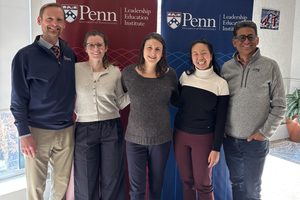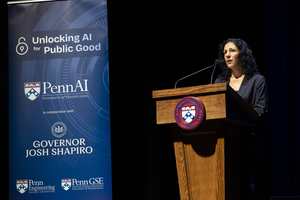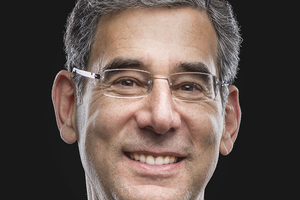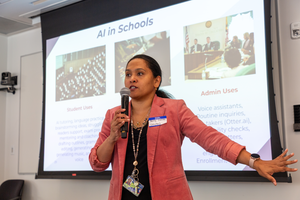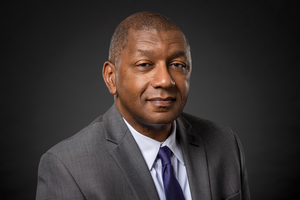
This six-week summer program takes place at school, but don't call it summer school.
It's not remedial, and there are no tests. Instead, it's a program to get kids excited about school and socialization and to make up for lost time — a loss of both learning time and school time. For many kids, that loss has led to both academic difficulties and socio-emotional struggles.
"Kids who might have been entering kindergarten the year of the pandemic, they're going from daycare to first grade having never been in a school building," said Caroline Watts, director of the Office of School and Community Engagement at Penn GSE, which planned the program as a response to the pandemic. "That's a big jump with respect to impulse control and with respect to frustration tolerance."
To put it in even starker terms: at times, fifth-graders can seem like third-graders in fifth-grade bodies — because they missed large chunks of in-person class during third and fourth grade. Likewise, many seventh-graders haven't shaken all of their fifth-grade tendencies. The summer program hopes to help close these academic and socio-emotional gaps.
OSCE led the design of the academic components of the program in 2021 and implemented it in partnership with Penn's Netter Center for Community Partnerships and the School District of Philadelphia. The program takes place at the Andrew Hamilton School and Penn Alexander School and serves 240 primarily from five West and Southwest Philadelphia schools.
"Our goal is to help teachers and students find joy, to reconnect with each other and to find confidence," said Julie Berger, associate director of OSCE and a two-time Penn GSE graduate.
The summer program collaboration between Netter and GSE builds upon funding that the Netter Center receives from the Philadelphia Out-of-School Time and Pennsylvania’s 21st Century Community Learning Center programs, as well as the CHOP Healthier Together initiative, to implement comprehensive University-Assisted Community Schools. This partnership connects academic, human, and material resources from Penn and the community to activities during the school day, after school, and in the summer. In this successful summer collaboration, GSE faculty, staff, and students collaborate with Netter staff and students as well as other Penn partners to provide academic, enrichment, and mental health and wellness programming.
A typical morning starts with breakfast and then an academic block of math and literacy, supported by the Philadelphia Writing Project and the Responsive Math Teaching Project. In the afternoon, students opt into an enrichment activity, ranging from sports and theater to chess and drone piloting.
A standout feature of the summer program is its focus on both mental health and mental wellness. Rather than wait for a crisis to introduce a student to a counselor, a team of counselors integrates their work into each student's day and teaches them tools such as breathing, mindfulness and motivation. These tools can be used in math and reading, not just in interpersonal quarrels.
"We want to expose the students to different methods of self-care and understanding and how to cope with things," said Cletus Leon, a 2021 Penn GSE graduate who has worked in the program for both summers. "The curriculum has a focus on mental health to teach the students to support themselves and those around them."
Chosen as one of Penn's inaugural Projects for Progress in 2021, the program also received funding from the William Penn Foundation, which awarded it two more years of funding this year. The curriculum and structure will evolve based on feedback from students, parents and the community.
"What we can do in these communities is be open and involved to the requests and needs of families, students, and educators," said Watts. "Our success in that is borne out in the longevity of our partnerships, in how we've grown, and in what we do based on what people tell us they need."


